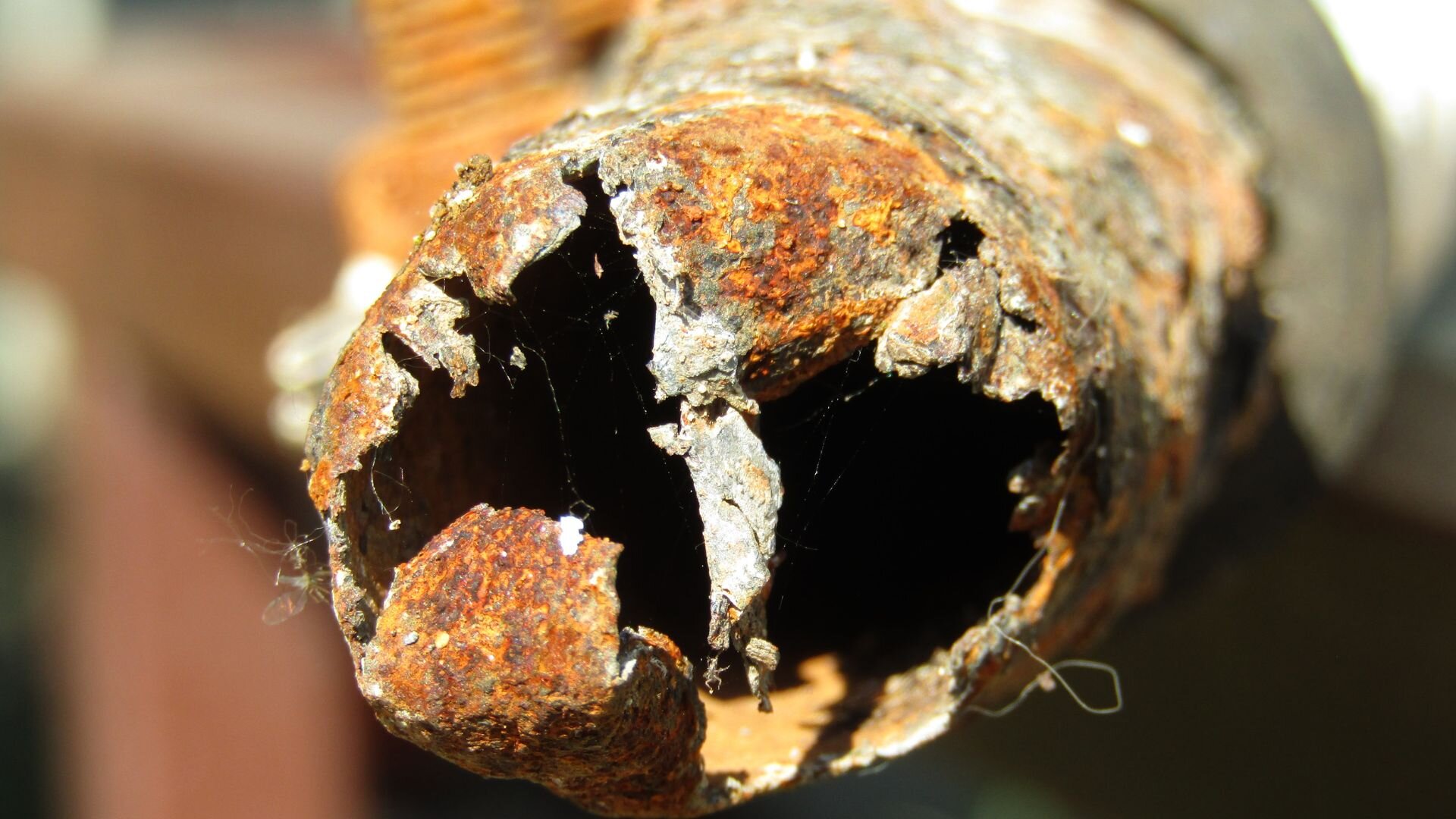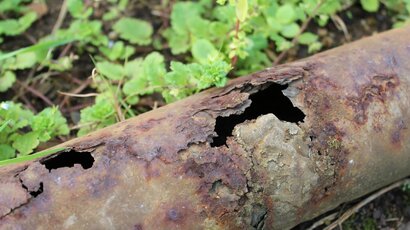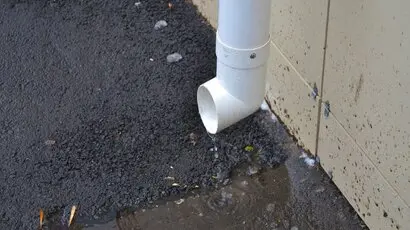Beneath every home lies a network vital to its daily life—the plumbing system. A hidden danger often lurks within this essential setup, unnoticed until disaster strikes: corrosion. More than just a spot of rust, corrosion is a persistent menace that can weaken the very heart of your home.
If left unchecked, corroded plumbing can severely weaken pipes, leading to unexpected leaks or even catastrophic bursts. Poor installation, including improper connections and inadequate materials, can accelerate this process, risking your water supply. When corrosion progresses, the structure of the pipes becomes compromised, leading to increased vulnerability and the potential for a sudden burst under pressure.
To effectively address corroded plumbing, it’s essential to work with an experienced plumber who can assess the extent of the damage and provide reliable solutions. They can identify issues early and help replace or repair weakened sections before they become a larger problem.
Regular check-ups and maintenance by a seasoned plumber are crucial in stopping any disasters. Proper care keeps your plumbing efficient and safeguards your water supply from possible corrosion issues.
Unraveling the Mysteries of Pipe Corrosion
Pipe corrosion is essentially an unavoidable chemical process that breaks down metal pipes over time. This wear and tear result from ongoing reactions between pipe materials and the substances they meet. Although often hidden, the effects of this wear shouldn’t be ignored, as they can cause major plumbing issues.
Several types of corrosion can afflict your home’s piping:
![]()
Pitting Corrosion
This localised attack creates small yet deep cavities in the metal, compromising the pipe’s strength and often leading to leaks.
Uniform Corrosion
As the name suggests, this corrosion spreads uniformly across the surface, thinning the metal and reducing its integrity and pressure-handling capabilities.
Galvanic Corrosion
It occurs when two dissimilar metals are connected in the presence of an electrolyte, leading to the deterioration of one of them.
Materials commonly used in plumbing, such as copper, steel, and iron, are each vulnerable to these corrosive forces. Understanding how these materials interact with their environment is essential for effective prevention and maintenance, extending the life of your plumbing infrastructure and safeguarding your home against unforeseen damage.
What Contributes To Pipe Corrosion?
Several factors can accelerate pipe corrosion:
- Water Chemistry: High acidity or low pH levels can eat away at pipes.
- Oxygen Levels: Oxygen in water can react with metals, leading to rust and corrosion.
- Water Velocity: Too much speed in water flow can erode pipes over time.
- Temperature: Hot water can speed up the corrosion process.
- Chemical Presence: Certain chemicals in the water can cause or expedite corrosion.
Signs of Corrosion in Pipes
Corrosion in your home’s plumbing can show itself in various ways before it results in a burst pipe. You might notice the pipe looks different; discolouration, stains, or odd bulging are clear signs that corrosion is happening.
Additionally, the water flowing from your taps may reveal the problem lurking within your pipes—a rusty tinge or a peculiar metallic taste can indicate corroding metal. However, not all evidence of corrosion is immediately apparent to the untrained eye, and often, the deterioration is cloaked behind the walls, requiring the keen assessment of a professional plumber.
The actual danger of corrosion lies in its silent yet destructive progression, which insidiously compromises the structural integrity of your pipes. This weakening can reach a critical point where the pipes can no longer withstand the water pressure coursing through them, leading to leaks or catastrophic bursts. A burst pipe can unleash a deluge capable of inflicting severe damage, potentially jeopardising the very foundations of your home and even its electrical systems.
The aftermath of such an event disrupts daily life and can lead to considerable financial strain.
Proactive Strategies for Pipe Corrosion Prevention and Maintenance
![]()
Ensuring the Longevity of Your Plumbing System
Guarding against the insidious nature of pipe corrosion requires a multifaceted approach that balances regular maintenance with preventative strategies. Maintaining the integrity of your pipes isn’t just about reacting to problems as they arise—it’s about anticipating them and implementing measures to avert potential damage.
Strategic Water Treatment
One of the cornerstones of corrosion prevention is the quality of water coursing through your pipes. Hard water, high in minerals, can accelerate corrosion, while water with an imbalanced pH can be equally damaging.
Implementing water softeners can mitigate the mineral content, and pH adjusters can ensure the water is neither too acidic nor too alkaline. These treatments help to maintain a neutral environment that minimises the corrosive effects on your plumbing.
Employing Protective Measures
Beyond water treatment, physical barriers can provide a line of defence for your pipes. Protective coatings can be applied to the interior and exterior surfaces of pipes, creating a resilient shield against corrosive elements.
Additionally, the strategic use of sacrificial anodes—an impressed current system—can draw corrosive activity away from the pipe material, thereby extending the system’s life.
Commitment to Regular Inspections
While preventative measures are essential, they must be complemented with a commitment to regular inspections. A licensed plumber can thoroughly evaluate your plumbing system, identifying early signs of corrosion you may not detect. These professionals look beyond the obvious, using specialised tools and expertise to uncover hidden problems.
Responsive Actions When Corrosion is Detected
Prompt action is critical when you suspect your pipes fall prey to corrosion. The first step is to assess the visible condition of your pipes for any signs of deterioration.
If the water quality from your taps has changed, it may be time to test for corrosive elements. In both scenarios, it’s prudent to engage the services of a professional plumber who can provide a comprehensive diagnosis and recommend the most effective solution.
Whether it’s replacing damaged sections, upgrading materials, or tweaking your water treatment plan, expert advice can turn a potential disaster into something manageable.
What to Do If You Suspect Corrosion
![]()
Navigating the Initial Steps When Facing Potential Corrosion
The suspicion of pipe corrosion within your home’s plumbing system should prompt a quick and methodical response to prevent damage progression. Here’s how to proceed if you detect the telltale indicators of this silent yet destructive process.
Conduct a Preliminary Inspection
Begin by visually inspecting all accessible pipes. Look for signs like discolouration, bulging, or stains—these often indicate corrosion starting. Pipes in basements, crawl spaces, and utility areas are typical spots where signs of wear might appear first.
Evaluate Your Water Quality
Alterations in your water can offer clues to the health of your pipes. If your water has a rusty appearance, contains visible sediment, or has developed a metallic taste, these changes can indicate the presence of corrosion.
Seek Professional Expertise
While personal observations can be helpful, there’s no substitute for professional expertise. A licensed plumber has the tools and knowledge to inspect your plumbing system comprehensively. They can reach areas typically out of sight and use specialised equipment to detect corrosion you might not see.
Professional Diagnostics and Solutions
The plumber will confirm the presence of corrosion, determine its extent, and recommend practical solutions. They may suggest pipe replacement, application of protective materials, or adjustments to your water treatment process to combat aggressive water conditions contributing to the issue.
If the corrosion is significant, the plumber may advise a more extensive replacement strategy to prevent future issues, such as upgrading to corrosion-resistant materials like PEX (cross-linked polyethylene) or copper for your piping.
Proactive Prevention Post-Inspection
Consider setting up a regular maintenance schedule once the immediate concerns have been addressed. Ongoing inspections and water quality testing play a critical role in catching and dealing with corrosion before it becomes a larger problem. Additionally, exploring long-term preventative measures, such as water softeners or corrosion inhibitors, can prolong the life of your plumbing system.
Safeguard Your Sanctuary: Combating Pipe Corrosion
Being aware and proactive are key in the complex task of maintaining your home. Spotting the slow creep of corrosion in your pipes is essential for safeguarding your cherished space. With the right knowledge of what to watch for and understanding the risks of doing nothing, you’re prepared to shield your home from pipe decay.
As we conclude our exploration into the world of pipe corrosion, let the urgency of preservation guide you to action. Do not let a minor leak escalate into a full-scale deluge. Whether you’ve identified the harbingers of corrosion or simply understand the wisdom of precaution, the time to act is now.
If you’re in Melbourne and suspect that corrosion may compromise your plumbing, or if time has lapsed since your last professional evaluation, WP Plumbing is your go-to expert. Proactive measures and regular plumbing inspections guard against the turmoil of unexpected pipe failure.
Reach out to WP Plumbing in Melbourne today and take a definitive step towards securing the longevity and reliability of your home’s plumbing system.






